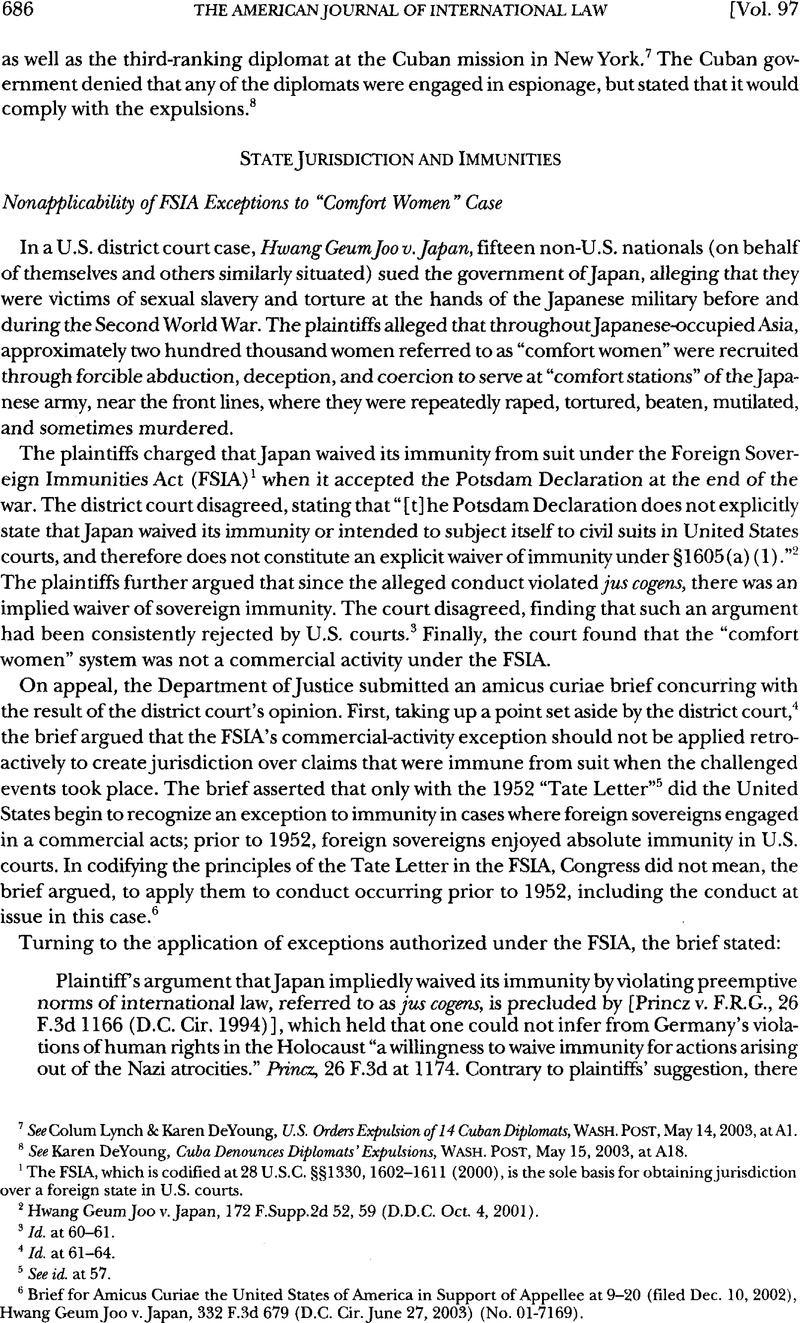Published online by Cambridge University Press: 10 March 2017

1 The FSIA, which is codified at 28 U.S.C. §§1330,1602–1611 (2000), is the sole basis for obtaining jurisdiction over a foreign state in U.S. courts.
2 Hwang Geumjoo v. Japan, 172 F.Supp.2d 52, 59 (D.D.C. Oct. 4, 2001).
3 Id. at 60–61.
4 Id. at 61–64.
5 See id. at 57.
6 Brief for Amicus Curiae the United States of America in Support of Appellee at 9–20 (filed Dec. 10, 2002), Hwang Geumjoo v. Japan, 332 F.3d 679 (D.C. Cir. June 27, 2003) (No. 01–7169).
7 Id. at 20–23 (footnote omitted).
8 See Altmann v. Austria, 317 F.3d 954 (9th Cir. 2002). In Altmann, the district court had found that the FSIA may be generally applied to events predating the “Tate Letter.” The circuit court disagreed with that broad conclusion but agreed that the FSIA exceptions could be applied to the specific acts at issue in Altmann, which involved paintings allegedly stolen by the Nazis, with Austrian assistance, in the 1940s. According to the circuit court, the main reason why the FSIA exceptions could be applied was that Austria in the 1940s could not have had a legitimate expectation of immunity from prosecution for those acts, given that such seizures violated both Austria’s and Germany’s obligations under the laws of war. Id. at 962–67.
9 Hwang Geum Joo v. Japan, 332 F.3d 679, 681 (D.C. Cir. 2003). For the Second Circuit’s consideration of the retroactivity of the FSIA, see Abrams v. Societe Nationale des Chemins de Fer, 332 F.3d 173 (2d Cir. 2003) (finding the existing record insufficient for assessing whether application of the FSIA would have an impermissible retroactive effect by effectively extinguishing plaintiffs’ causes of action).
10 Hwang Geum Joo, 332 F.3d at 686.